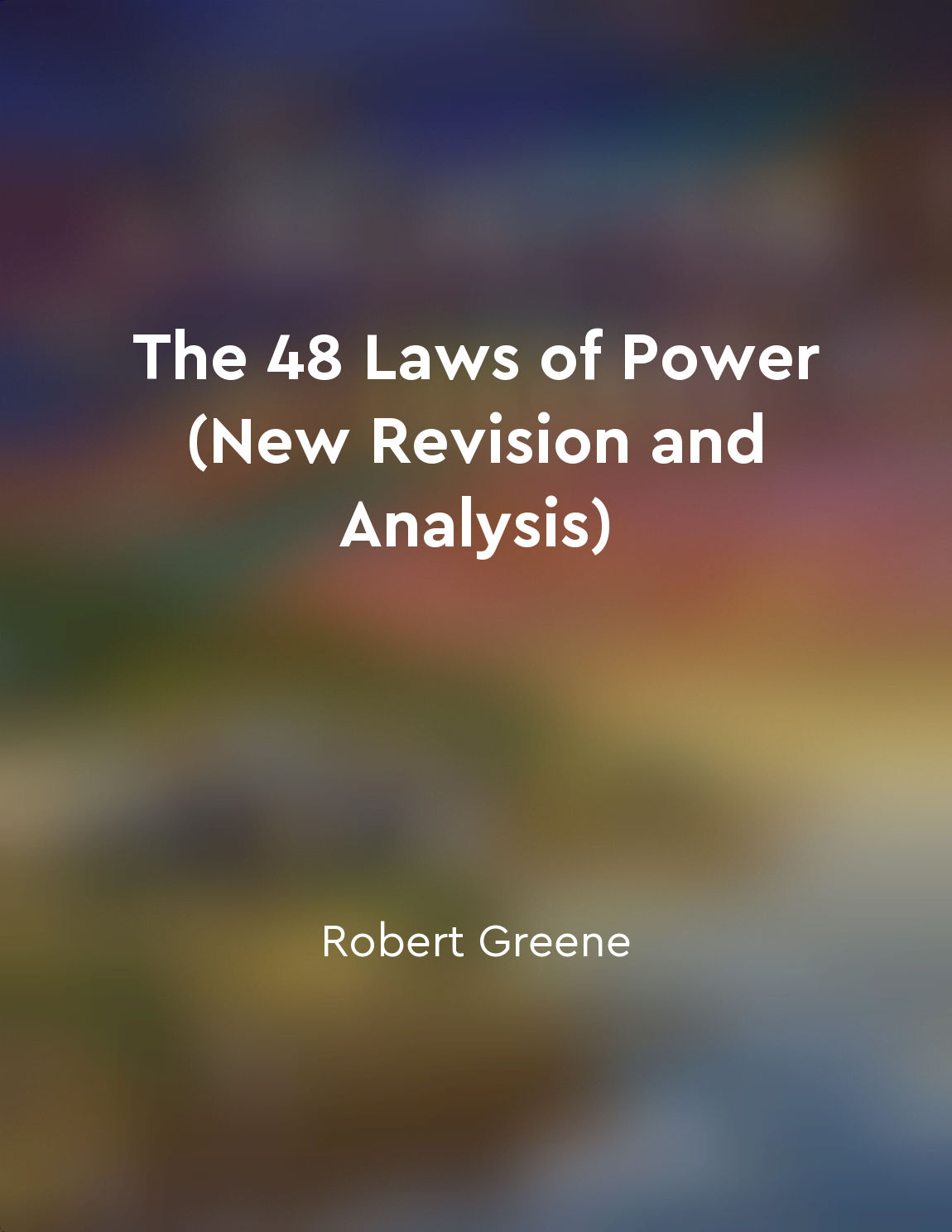Power can create a sense of entitlement from "summary" of The Power Paradox by Dacher Keltner
The notion that power can breed entitlement is a central theme in understanding the dynamics of human behavior. As individuals rise in power, whether it be in a social, political, or organizational context, they tend to develop a sense of privilege and superiority over others. This sense of entitlement manifests in various ways, such as expecting special treatment, disregarding the needs and feelings of others, and engaging in unethical behaviors to maintain their power. This phenomenon can be attributed to the psychological effects of power on the human brain. Research has shown that power can alter the brain's perception of social cues, leading individuals to focus more on their own needs and desires rather than those of others. This cognitive shift can result in a distorted sense of reality, where individuals believe they are more deserving of resources, respect, and admiration than others. Moreover, the social dynamics of power play a significant role in fostering entitlement. When individuals are in positions of power, they are often surrounded by subordinates who rely on them for guidance, resources, and approval. This imbalance of power can create a feedback loop where those in power receive constant validation of their superiority, reinforcing their sense of entitlement. Furthermore, the societal norms and expectations associated with power can contribute to the development of entitlement among powerful individuals. In many cultures, power is equated with success, status, and influence, leading people to believe that they are entitled to certain privileges and perks simply by virtue of their position.- The concept that power can create a sense of entitlement is a complex and nuanced phenomenon that requires a deep understanding of human psychology, social dynamics, and cultural influences. By recognizing the potential pitfalls of power and actively working to counteract entitlement, individuals in positions of power can cultivate a more empathetic, ethical, and sustainable approach to leadership.
Similar Posts
Law 20: Do not commit to anyone
Law 20 warns against committing to anyone. This law is about preserving your independence and freedom of action. When you commi...
Building rapport is essential in gaining influence over others
Building rapport involves establishing a sense of mutual liking and trust between individuals. When people feel connected to ea...
Liberation
Liberation is not just about freedom from oppression; it also involves the creation of spaces where people can truly be themsel...

The quest for knowledge requires intellectual curiosity and a willingness to challenge assumptions
Intellectual curiosity is the driving force behind the quest for knowledge. It is the desire to explore, to question, and to un...

Keep your word
To be powerful, you must be known for keeping your word. Your reputation for trustworthiness is one of the most valuable assets...
Demonstration of expertise builds credibility
When we demonstrate our expertise in a particular subject or field, we are showing others that we have knowledge and skills tha...
Building trust is essential to wield power effectively
Building trust is an indispensable element in the exercise of power in human relationships. Without trust, any attempt to exert...
Recognize the power dynamics in any relationship
Understanding power dynamics in relationships is crucial for navigating social situations effectively. Power dynamics refer to ...
Cultivate an air of unpredictability
To be predictable is to be boring, and boredom is a surefire way to lose power and influence. People are drawn to those who kee...
Power can corrupt individuals
The seductive powers of power can corrupt individuals in subtle and often unnoticed ways. When one is bestowed with power, it c...

